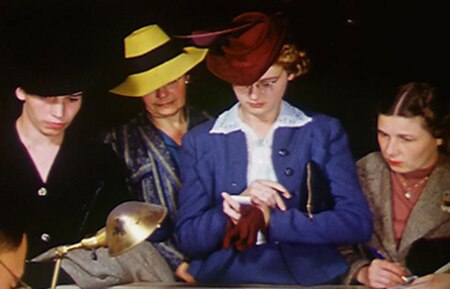Bay Area Television Archive
Culture of San FranciscoDocumentary film organizationsFilm archives in the United StatesNon-profit organizations based in San FranciscoSan Francisco State University ... and 2 more
Television archives in the United StatesTelevision preservation

The Bay Area Television Archive (BATA) is a regional moving image archive. It preserves and digitally restores 16mm newsfilm, documentaries and other shows produced by TV stations in Northern California (1948–2005), local Emmy Award-winning programs (1974–2005) and privately donated film collections (1939–2004).BATA was established in 1982 by Helene Whitson and is part of the J. Paul Leonard Library's Special Collections Unit, located on San Francisco State University's main campus.
Excerpt from the Wikipedia article Bay Area Television Archive (License: CC BY-SA 3.0, Authors, Images).Bay Area Television Archive
Holloway Avenue, San Francisco
Geographical coordinates (GPS) Address Website Nearby Places Show on map
Geographical coordinates (GPS)
| Latitude | Longitude |
|---|---|
| N 37.7213 ° | E -122.4783 ° |
Address
San Francisco State University
Holloway Avenue 1600
94132 San Francisco
California, United States
Open on Google Maps





